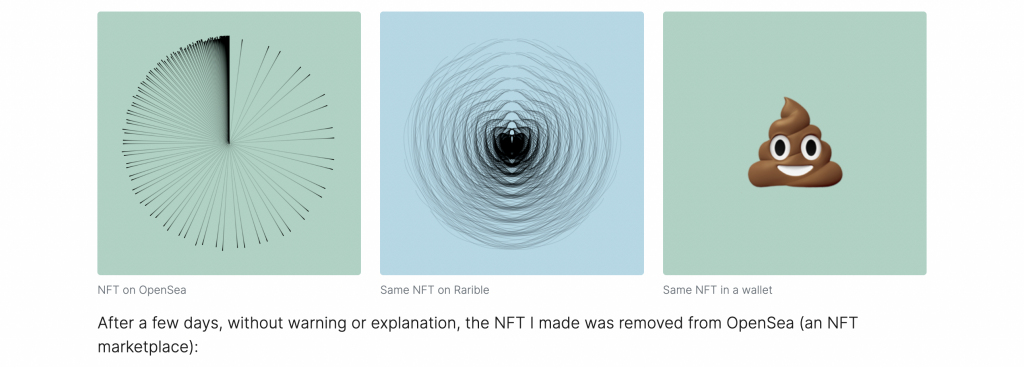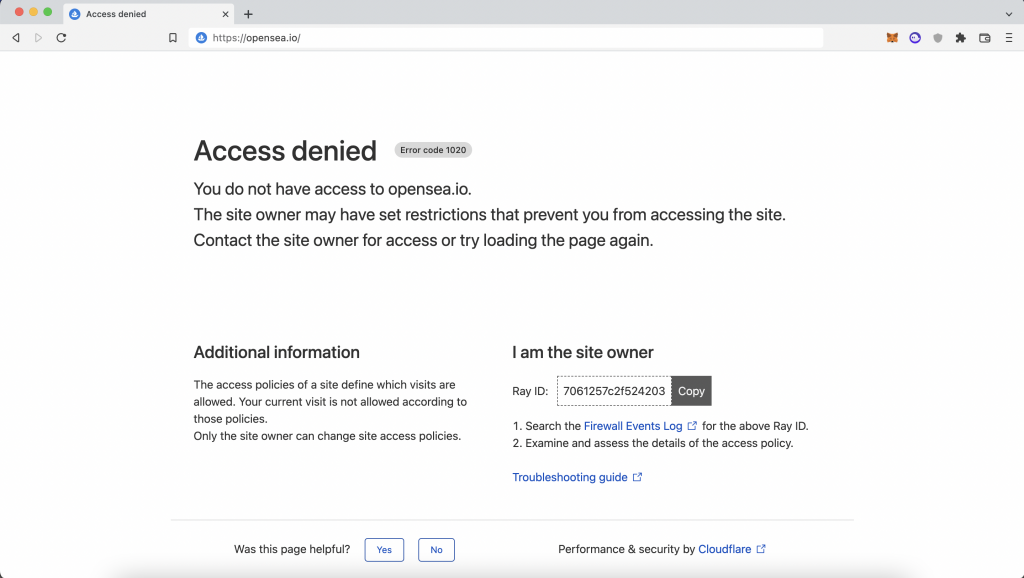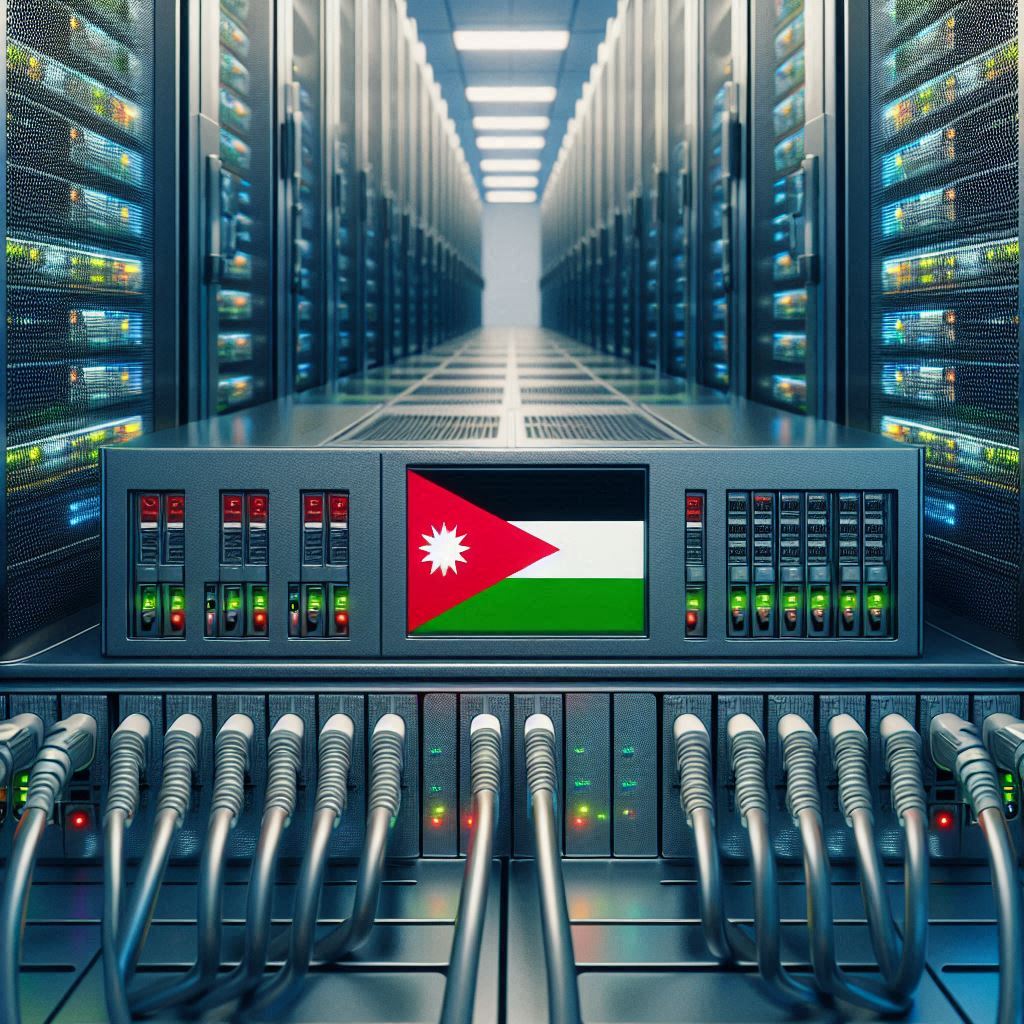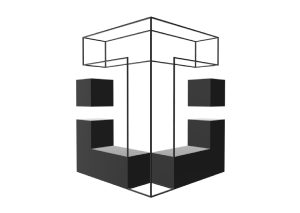Last March, news started circulating about users from Iran and Venezuela getting blocked from using Metamask, one of the most popular crypto wallets, and Opensea, the world’s biggest NFTs platform. Although the ban came in parallel with the Russian war on Ukraine, both Metamask and Opensea still operate normally in Russia until the time of writing.
Some users reported having their accounts disappear or shut down, including artists that lived off their NFT sales. These news raised fears that further shutdowns can extend to new countries, specially sanctioned states such as the ones in the Middle East.
These problems are not particularly new to us residents of MENA, but the point is that this time, things were supposed to be different for us. We were promised a censorship-resistant decentralized internet that is accessible to everyone, no matter what. It seems that things are not that simple. This gives us reason to think about the decentralized internet … how decentralized is it?
Early on in 2022, two months before the Metamask and Opensea news broke out, the founder of Signal, Moxie Marlinspike, published a blog titled: My first impressions of web3. The blog speaks of Moxie’s first interactions and experimentations in the blockchain world, where he developed two decentralized apps, or dApps.
One of the two dApps functions as a shape-shifting NFT, that changes it’s media content depending on the platform on which you’re viewing the NFT. For example, the NFT would look one way on Opensea, another way on Rarible, and would turn into a poop emoji when viewed directly from a wallet (a joke that NFTs might look like something on the platforms but turn to shit once you buy them).

Opensea has removed Moxie’s NFT, presumably due to Terms & Conditions, although nothing mentioned in Opensea’s guidelines might imply that. However, what was interesting is that the NFT wasn’t only removed from Opensea, it disappeared from all wallets and platforms:
“What I found most interesting, though, is that after OpenSea removed my NFT, it also no longer appeared in any crypto wallet on my device. This is web3, though, how is that possible?”
While the NFT’s ownership information exists on the blockchain, so nobody can change who owns Moxie’s NFT other than Moxie, almost all other metadata, such as the NFT’s title and media content, are kept on Opensea or Opensea-related centralized servers. If Opensea removes an NFT all other wallets and platforms lose access to this NFT’s metadata, and therefore it loses its name or cover picture or media content, and becomes worthless.
Opensea is playing a central role in this case, and is monopolizing users ability to keep their NFTs functional outside of Opensea.
What intensifies this issue is that Opensea is a private company, owned by a certain group of people, and does not issue tokens or shares for people to buy. Therefore the decision-making process in Opensea that influences what terms and conditions to apply, is limited to Opensea’s central management, while users who give the platform its worth are completely removed from the process.

How are people in the blockchain sphere thinking about this problem?
Vitalik Butren, founder of Ethereum, the blockchain that relies the most on Opensea and Metamask, replied to Moxie’s blog in a Reddit post, pointing to the early level of development web3 has reached today, and explaining how many of the vital cornerstones of structural decentralization are still not ready for implementation, and hence for tackling issues like the ones surrounding Opensea’s central role.
Others on the internet have demanded, once again, that Opensea decentralizes itself and turns into a DAO, like many centralized projects essential in the Ethereum ecosystem have done recently, such as Ethereum Name Service. Unfortunately, this demand falls on deaf ears still, as Opensea’s management rather turn to traditional tools of funding (Venture Capital and Banks) rather than crowdfunding and decentralizing ownership.
Faced with this dead-end, increasing numbers of MENA NFT users started exploring alternative blockchains to Ethereum, Solana and Cardano more than others. NFT flippers in Lebanon in particular are exploring more than one alternative to Opensea, waiting for the hammer to fall, as Opensea is already banned in the country, and users turn to VPN to make their way to their accounts.





